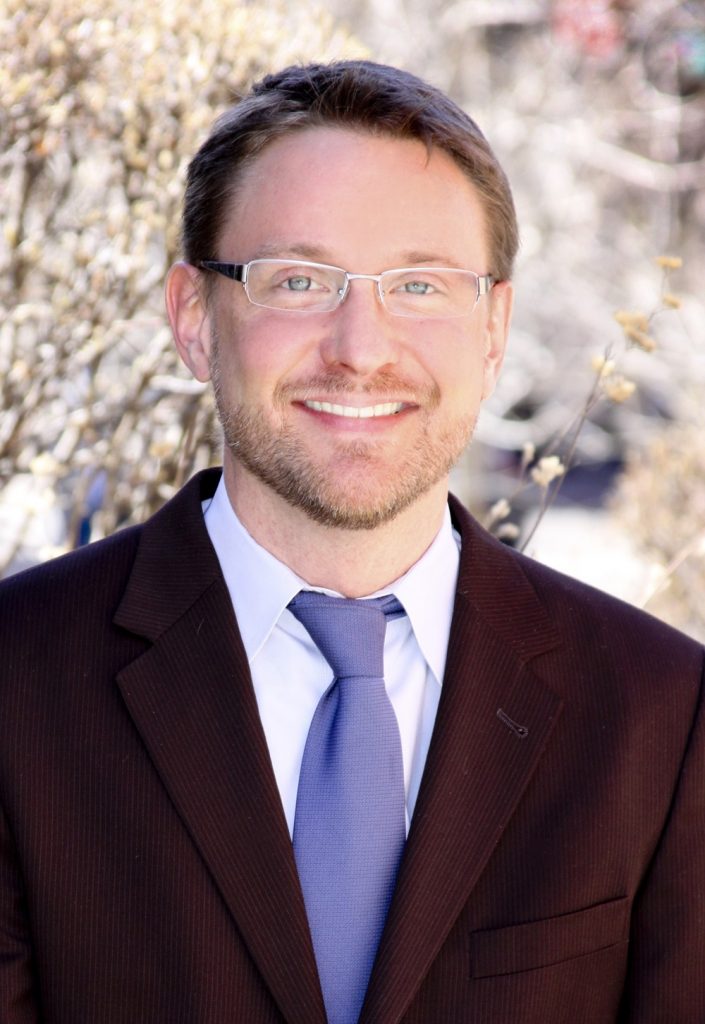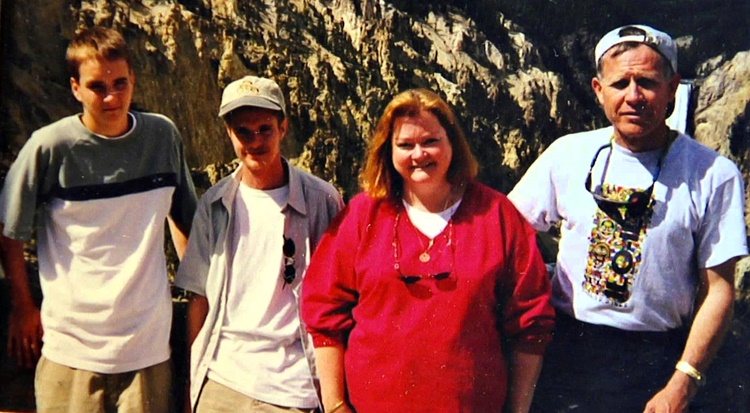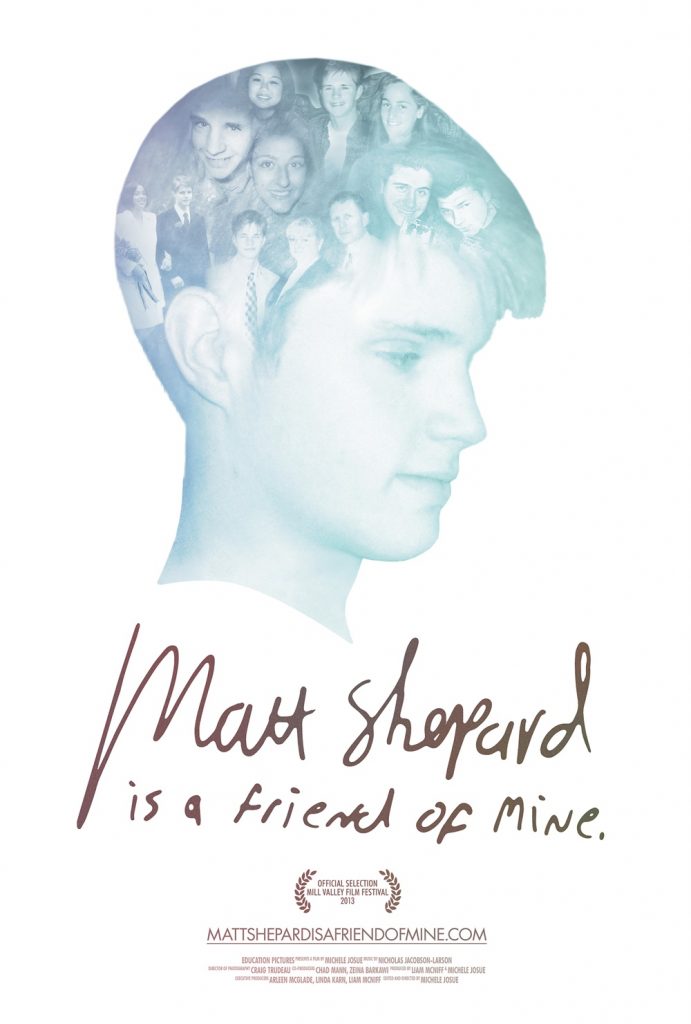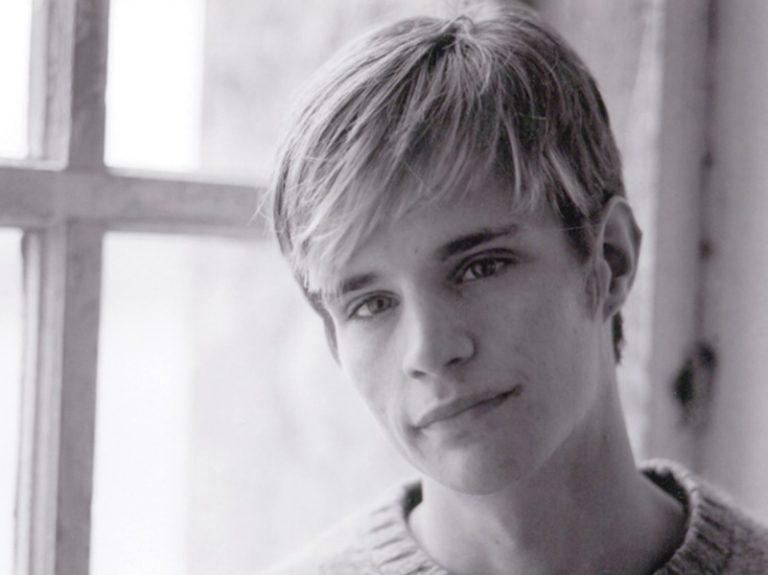The American Embassy in Iceland and GayIceland are hosting a screening of the film “Matt Shepard is a Friend of Mine”at Bíó Paradís tomorrow night, at 17.30. Jason Marsden, a friend of Matthew and the executive director of the Matthew Shepard Foundation, will take part in an online discussion after the screening.

The film “Matt Shepard is a Friend of Mine” will be screened in Reykjavík, Iceland tomorrow night, Tuesday, June 14. The film has been shown to international audiences over the past year. How has it been received? “I’ve been so gratified by the number of people who have contacted the Matthew Shepard Foundation on their own initiative to tell us how inspiring they found the movie to be. In addition to a daytime Emmy and numerous film festival awards, it has also made Matt and his life more real to people who have only known him as a historical figure, a victim, or a symbol,” says Jason. The foundation he refers to was founded by Dennis and Judy Shepard, Matthew’s parents. The foundation, which is run by Jason, seeks to “replace hate with understanding, compassion and acceptance” through various educational, outreach and advocacy programs.
You were a personal friend of Matthew. What are your own thoughts of the film? “I was so touched when I saw the film for the first time. It helped me see that the Matt I knew was a lot like the Matt that other friends from his other walks of life knew him to be. I was viscerally affected by the brief moment when we hear Matt’s voice – I have found that one of the toughest parts of losing someone is that you start to forget what their voice sounded like. The film gave that back to me.”
Why do you think it’s relevant that people see it today, 18 years after the tragedy happened? “We keep Matt’s story alive by continuing to tell it; for more than 17 years, Judy and Dennis Shepard have been on the road constantly to speak about Matt and the topic of acceptance. “Hate crimes” and discrimination are abstract concepts. The tragic death of a single person, with a name, a face, ambitions, frailties — that makes the whole complex set of problems LGBTQ+ people have so much more concrete and understandable. There are many young people today who aren’t familiar with Matt’s story. They were either too young or not yet born at the time it happened.
“Matt was a normal, average college student who was brutally attacked and killed for being gay. His death marked a tipping point for the LGBTQ+ community and sparked a new movement and generation of activists who refused to stay silent about it…”
This film is one of several forms of popular media that people can access that portray an real, authentic account of Matt’s life and the world’s reaction to his death, and why that is important. Matt’s story is, unfortunately, still very relevant for many LGBTQ+ and allies today and will remain so as long as hate continues to threaten people’s lives,” says Jason and praises Michele Josue for her directing.
“The film only tangentially explores what I like to call “the hate industry.” We see the delusional Westboro Baptist Church performing for the cameras, but Michele Josue rightly keeps our focus squarely on Matt himself. But by reclaiming the value of this one man’s life, and how he deserved to keep it, we all come to realize organically that the cost of hatred is suffering that spreads beyond our own personal circle to strangers halfway across the world.”

The documentary has not only received rave reviews; The New York Times called it a “A tender reconstruction of personal loss.” Rogert Ebert goes so far as to call it “’a great documentary…This film doesn’t just revisit an atrocity, it moves through it, and finds meaning in it.”
But the film has also had major impact in the United States, thanks to Matthew’s parents who have campaigned relentlessly. That campaign has led to a major shift in American law. Tell us about that, and how it feels to see the difference Matthew’s story has already made?
“One of the biggest highlights for the Shepards, and the Foundation as a whole, was the signing of the Matthew Shepard and James Byrd, Jr. Hate Crimes Prevention Act by President Barack Obama in October 2009. After more than a decade of advocating and lobbying, the Shepard-Byrd Act expanded the United States’ federal hate crimes law to include bias toward someone’s actual or perceived gender, gender identity, sexual orientation and disability. This legislation allows local, state and federal law enforcement officials to investigate and charge perpetrators with hate crimes in jurisdictions that do not have their own hate crimes law or, if they do, inclusive laws of all victim types. This was the first-ever federal law that specifically acknowledged and protected LGBTQ people’s rights rather than limiting or taking them away. Having the example of Matt and of James Byrd was extremely important in helping lawmakers understand the gravity of the hate crime issue and the need for protections to be expanded.”
Given the U.S. experience in addressing hate crime and violence targeting LGBT people, including the passage of the Shepard-Byrd Hate Crimes Law, what does Shepard Foundation believe can be shared with the rest of the world about addressing hate crime and violence?
“The most basic step is to start dismantling anti-LGBT prejudice in our communities. One of the most effective ways to do this is for LGBT individuals in those communities to be public about their sexual orientations and gender identities. By publicly coming out like this, by telling their stories, they personalize our community for outsiders, elevating our equality from a political concept to a personal issue. In other words, it’s much harder for someone to hate gay people once someone learns their son is gay, or their sister, brother, neighbor. Coming out, getting to know one another, changes hearts and minds.

“…for more than 17 years, Judy and Dennis Shepard have been on the road constantly to speak about Matt and the topic of acceptance.”
More systemically, LGBT equality and safety depend on a strong legal system that recognizes equality and safety LGBT persons as inalienable rights, and allows enhanced penalties when those rights are violated. For example, state and federal hate crimes laws acknowledge that LGBT persons not only have a right to be free from bias-motivated violence, but recognize that LGBT persons are also disproportionately targets of such violence. Consequently, hate crimes laws allow prosecutors to add penalties to a criminal’s sentence, be it more time in prison or more money that must be paid to the victims and their families.”
Are there are specific lessons, best practices and challenges that would be useful to highlight? “There are several lessons. First, virtually all hate crimes go unreported to law enforcement. The Department of Justice conducted a massive survey of more than 90,000 scientifically sampled citizens to discover what type of crimes they have been victims of. The results showed that there are probably about 250,000 hate crimes committed in this country alone every year. But by the time police departments report to the FBI what has happened in each of their jurisdictions that year, only 6,000 to 7,000 crimes are reported and recorded. People tell us they didn’t report because they didn’t trust the police to do anything about it, or fear they might be victimized by the law enforcement system themselves due to bias, immigration status and other factors. Police consistently tell us they are disappointed and are being misunderstood. A good deal of our work right now is in trying to bride that gap.”
We turn our chat back to the film screening in Reykjavík where Jason will take part in an online discussion after the screening “Matt Shepard is a Friend of Mine”. How does he feel about the film being shown in Iceland and about interacting with an Icelandic audience?

“I couldn’t be more pleased to interact with the audience in Reykjavik and I look forward to getting a better understanding of the community. We’ve seen the film cross so many borders now, from Russia to the Caribbean, be translated into other languages, and continue to strengthen its impact.”
There is no question about that the attack and murder of Matthew Shepard is one of the most notorious hate crimes in US history. Jason and other friends and family members of Matthews have made it a life long goal to keep his memory alive but what does Jason specifically hope grows out of sharing Matthew’s story?
“Matthew and his story got a great deal of attention at the time and in the years since, largely because his parents refused to let the world ignore it. But without comprehensive LGBTQ+ history and culture in our educational curriculum, stories like Matt’s will mostly go unnoticed unless mentioned in news article, told through word of mouth or presented through art like this film, or the play The Laramie Project. From the youth we engage with and interact with, we always find that young people strongly connect with Matthew’s story and his impact. He was a fervent supporter of human and civil rights around the world. He struggled with depression and loneliness. He had triumphs and failures. He was incredibly human, certainly not without flaws, and sought to find love and happiness in his life, work and studies, like many of us do. Young people are inspired by his story and aspire to continue on his path in honor of him.
“Matt’s story is, unfortunately, still very relevant for many LGBTQ+ and allies today and will remain so as long as hate continues to threaten people’s lives.”
The significance in Matthew’s death and the impact it had on the world in 1998 was about much more than who Matt was as a person or an individual, but more representative of a society’s treatment and abuse of the LGBTQ+ community. For decades, gay, lesbian, bisexual and transgender people had been harassed, abused and killed for being who they are. Matthew became a figurehead for the “people we knew,” our neighbors, coworkers, classmates, friends and family—people could no longer dismiss the violent actions as happening to “others.” Matt was a normal, average college student who was brutally attacked and killed for being gay. His death marked a tipping point for the LGBTQ+ community and sparked a new movement and generation of activists who refused to stay silent about it, and non-LGBTQ+ people could no longer ignore the harsh realities this community faced.”


